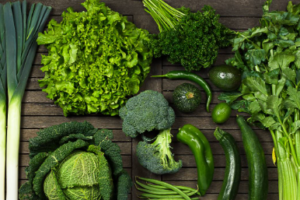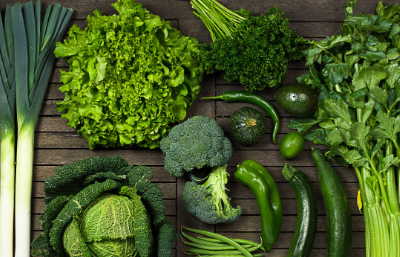Unveiling the Power of Organic Foods
In the realm of modern nutrition, organic food has become a prominent choice for health-conscious consumers seeking nutrient-rich options that align with sustainable practices. But what exactly defines organic food, and why is it garnering so much attention? Let’s explore the fundamentals, benefits, and considerations associated with organic eating to help you make informed choices.
What is Organic Food?
Organic food is cultivated according to strict standards that regulate the farming and processing practices of agricultural products. In the United States, organic crops must be grown without synthetic herbicides, pesticides, and fertilizers, and they cannot contain genetically modified organisms (GMOs). Livestock raised for organic meat, eggs, and dairy must have access to pasture, be fed organic feed, and are not administered antibiotics or growth hormones.
The Benefits of Organic Food
Organic food offers numerous advantages, both for personal health and environmental sustainability:
- Nutrient Density: Studies suggest that organic produce often contains higher levels of beneficial nutrients like antioxidants, which contribute to overall health and well-being.
- Reduced Pesticide Exposure: Organic farming avoids synthetic pesticides, minimizing potential health risks associated with pesticide residues found on conventionally grown foods.
- Environmental Impact: Organic farming practices prioritize soil health, reduce pollution, conserve water, and promote biodiversity. This holistic approach supports long-term ecological sustainability.
- Animal Welfare: Organically raised animals are provided with better living conditions, including outdoor access and natural feed, which can result in higher quality meat, eggs, and dairy products.
- GMO-Free: Organic certification ensures products are free from genetically modified organisms, supporting consumer preferences for natural, unaltered food sources.
Organic vs. Locally Grown Food
While organic focuses on farming practices, locally grown food emphasizes geographical proximity to the consumer. Both options offer distinct benefits:
- Local Food: Supports local economies, reduces transportation emissions, and promotes freshness due to minimal travel time from farm to table.
- Organic Food: Emphasizes farming practices that exclude synthetic chemicals and GMOs, offering assurance of health and environmental benefits.
Understanding GMOs
Genetically modified organisms are plants or animals whose genetic material has been altered in a laboratory setting. While proponents argue GMOs can increase crop yield and resistance to pests, concerns persist regarding their long-term effects on human health and the environment.
Does Organic Mean Pesticide-Free?
Organic farming employs naturally derived pesticides and biological control methods, which are considered less harmful than synthetic alternatives. While organic produce may still contain trace amounts of natural pesticides, overall pesticide exposure is significantly reduced compared to conventionally grown counterparts.
Making Organic Affordable
While organic food can be more expensive, several strategies can help manage costs:
- Prioritize Purchases: Focus on organic options for produce with higher pesticide levels (e.g., strawberries, spinach) while opting for conventional choices for items with lower pesticide residues (e.g., avocados, sweet corn).
- Shop Smart: Explore farmers’ markets, food cooperatives, and Community Supported Agriculture (CSA) programs for cost-effective organic options.
- In-Season Buying: Purchase fruits and vegetables when they are in season to capitalize on freshness and affordability.
Conclusion
Choosing organic food supports personal health, environmental sustainability, and ethical farming practices. By understanding the benefits, navigating labeling, and implementing cost-saving strategies, you can integrate organic choices into your diet without compromising on quality or budget. Whether you opt for organic for health benefits, environmental concerns, or taste preferences, each decision contributes to a more conscientious approach to food consumption. Embrace the power of organic foods and embark on a journey towards healthier living and a greener planet.






